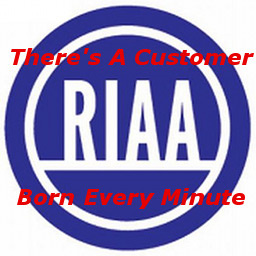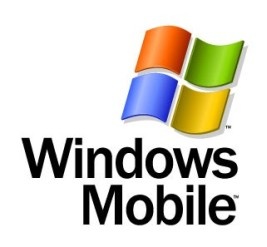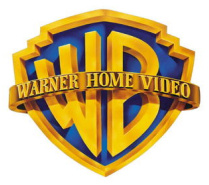News written by Rich Fiscus (May, 2009)
Written by Rich Fiscus @ 29 May 2009 3:11
 Less than four months after blocking Boxee media center users from accessing their content, Hulu's developers have introduced their own software called Hulu Desktop. Like Boxee it enables the use of a remote control for Hulu streams.
Less than four months after blocking Boxee media center users from accessing their content, Hulu's developers have introduced their own software called Hulu Desktop. Like Boxee it enables the use of a remote control for Hulu streams.
Boxee's Avner Ronen is optimistic about the implications for his company's future relationship with Hulu. Unfortunately for Boxee users there's a lot of reason to be skeptical.
Much of the original reason for Hulu's creation was frustration on the part of NBC and Fox executives. They wanted more control over their content than was offered by services like YouTube.
When Boxee users were suddenly cut off in February Hulu CEO Jason Kilar made it clear the decision came from those rather than Hulu management. Since then Hulu's ownership group has expanded to include Disney, a company known for their near-paranoid attitudes when it comes to content control.
Hulu desktop appears more like an attempt to create their own Boxee alternative. A message warning Apple users to shut down Boxee so their remotes will work correctly seems to confirm this.
Read more...
Written by Rich Fiscus @ 21 May 2009 12:51
 A Federal judge has shot down a RIAA request to have their usual team of forensic experts, whose actual expertise is questionable at best, examine Joel Tenenbaum's computer. Instead Judge Nancy Gertner ordered the RIAA to use a third party investigator, who will be required to provide her with a detailed description of their methods.
A Federal judge has shot down a RIAA request to have their usual team of forensic experts, whose actual expertise is questionable at best, examine Joel Tenenbaum's computer. Instead Judge Nancy Gertner ordered the RIAA to use a third party investigator, who will be required to provide her with a detailed description of their methods.
Although RIAA lawyers will be allowed to select their own forensic expert, the instructions they give to that individual will also be passed on to the judge, and their findings will be disclosed directly only to Mr. Tenenbaum's legal team. They will then be required to share the report with the RIAA.
In the past RIAA experts have shown a great deal of bias, even going so far as to claim a defendant in another case must have a second computer because the one she turned over for examination showed no evidence of file sharing software or even MP3 files.
The examination of Mr. Tenenbaum's computer will be limited to looking for music files, meta data about music files, evidence of file sharing activity, and evidence the hard drive has been wiped.
Read more...
Written by Rich Fiscus @ 19 May 2009 12:15
 Last Friday Brian Toder, the lawyer for Jammie Thomas in her defense of RIAA copyright infringement allegations, filed a motion to withdraw from the case. It was unopposed by the RIAA, unlike Ms Thomas' request for a continuance while she finds a new lawyer.
Last Friday Brian Toder, the lawyer for Jammie Thomas in her defense of RIAA copyright infringement allegations, filed a motion to withdraw from the case. It was unopposed by the RIAA, unlike Ms Thomas' request for a continuance while she finds a new lawyer.
If the objection were to come from anyone but an RIAA lawyer it would probably be surprising. But given their history of manipulating the legal system to ensure an unfair advantage over defendants no one should be shocked.
RIAA lawyers have no qualms about requesting a continuance when it suits their own purposes. In fact it's one of their favorite tactics to use whenever someone refuses to settle and instead insists on a trial.
Of course those continuances serve to cost the defendants money in legal fees (responding to RIAA motions).
Given the evidence against Jammie Thomas it seems unlikely the RIAA could have a stronger case. So why would they be opposed to her mounting the best defense possible?
It's pretty clear what worries them most is an opponent who understands the law. To date they have managed to avoid any judgement on the constitutionality of damage awards which amount to thousands or even millions of times the actual damages proven.
Read more...
Written by Rich Fiscus @ 19 May 2009 10:56
 As Congress considers new royalties for US radio stations to pay labels for promoting their music it seems somewhat ironic that the largest broadcaster in the US appears to be in serious financial trouble.
As Congress considers new royalties for US radio stations to pay labels for promoting their music it seems somewhat ironic that the largest broadcaster in the US appears to be in serious financial trouble.
Less than a year after being purchased by a private equity firm, Clear Channel Communications is working to restructure their debt, hoping to avoid bankruptcy.
Despite claims to the contrary by recording industry lobbyists, radio stations aren't making huge profits at the expense of the labels. In fact Clear Channel lost $428 million in the first quarter of this year.
The loss was primarily due to lower ad revenues. Revenue for the quarter dropped 23% from the same period in 2008.
Written by Rich Fiscus @ 19 May 2009 10:15
 With Circuit City out of the picture several billion dollars in electronics sales is up for grabs. Wal-Mart is upgrading the electronics departments in 3,500 locations to ensure they get a share of that money.
With Circuit City out of the picture several billion dollars in electronics sales is up for grabs. Wal-Mart is upgrading the electronics departments in 3,500 locations to ensure they get a share of that money.
The changes will include additional space for Blu-ray players and movies, high-definition televisions, PCs, and mobile phones.
"Circuit City's business is up for grabs right now and we expect to get our share," said Gary Severson, Wal-Mart's Senior Vice President of home entertainment.
Another major move will be the addition of ePlay kiosks to 77 stores. They will offer DVD, Blu-ray, and video game rentals.
Written by Rich Fiscus @ 18 May 2009 5:21
 This week Verizon Wireless added a unique offering to their standard selection of subsidized phones. If you sign up for mobile internet service you can get a HP Mini 1151NR netbook for $249.99 ($199.99 after $50 rebate).
This week Verizon Wireless added a unique offering to their standard selection of subsidized phones. If you sign up for mobile internet service you can get a HP Mini 1151NR netbook for $249.99 ($199.99 after $50 rebate).
The netbook features a 1.6GHz Atom CPU, 1GB RAM, an 80GB hard drive, a 10.1" screen with a native resolution of 1024x576, and mobile broadband, 802.11b/g wireless ethernet, and Bluetooth connectivity built in. It comes with Windows XP Home installed.
In the nearly two years since the introduction of the original iPhone the line between smartphone and ultra-portable computer has gradually blurred. There's even talk that Nokia, a leader in the smartphone market, will have their own line of netbooks soon.
But given the issues that AT&T iPhone owners have had making full use of their mobile internet servce it will be interesting to see how Verizon's network holds up.
It's one thing to support mobile email and scaled down versions of web pages. It's something else entirely for thousands (or tens of thousands) of people to use the same bandwidth for even basic web surfing using a standard desktop browser.
Read more...
Written by Rich Fiscus @ 18 May 2009 3:03
 If you're a well known artist today it's almost a certainty that any new album you record will be available on the internet before it goes on sale. Rather than complaining about the ineveitable, alternative members of Wilco have decided to stream their upcoming album themselves.
If you're a well known artist today it's almost a certainty that any new album you record will be available on the internet before it goes on sale. Rather than complaining about the ineveitable, alternative members of Wilco have decided to stream their upcoming album themselves.
The obvious benefit from letting visitors stream Wilco (the album) from their website is a chance to sell them pre-orders for the album. Pre-orders will begin shipping on June 25.
They are also providing some incentive for fans to buy it instead of downloading from P2P. People who order from their website get the option to buy an exclusive t-shirt which won't be available after June 29.
There is also a tote bag offered and every pre-order includes a download of the new song 'You Never Know' and entry into a series of drawings to take place between now and June 29.
Prizes will include 4 tickets to any (non-festival) 2009 wilco show and an iPod nano with the new album already loaded.
Written by Rich Fiscus @ 18 May 2009 12:22
 RealNetworks has asked a Federal judge for permission to add an antitrust complaint against the MPAA to their existing lawsuit against the the DVD Copy Control Association (DVD-CCA). The suit began as a preemptive strike to establish that their DVD copying software, RealDVD, doesn't violate their license with the DVD-CCA.
RealNetworks has asked a Federal judge for permission to add an antitrust complaint against the MPAA to their existing lawsuit against the the DVD Copy Control Association (DVD-CCA). The suit began as a preemptive strike to establish that their DVD copying software, RealDVD, doesn't violate their license with the DVD-CCA.
Although the MPAA isn't directly involved in the licensing of DVD decryption technology, there can be no question they are behind the very existence of CSS encryption, which makes it illegal to rip DVDs in the US.
In their filing, RealNetworks lawyers wrote "The CSS agreement is being used to extend a legally granted monopoly over content into separate markets – to prevent competition from technologies that would allow a copy of content for fair use purposes. But the making of a copy of a studio DVD is authorized fair use under the Copyright Act."
The biggest hurdle to most fair use arguments is the very nature of fair use. It is not, as many people believe, a right given to the public.
Read more...
Written by Rich Fiscus @ 14 May 2009 12:13
 On Tuesday the Judiciary Committee in the US House of Representatives approved the Performance Rights Act for consideration by the full House. If enacted into law as currently written, it would require most terrestrial radio stations to pay royalties to the copyright holder of each recording they play.
On Tuesday the Judiciary Committee in the US House of Representatives approved the Performance Rights Act for consideration by the full House. If enacted into law as currently written, it would require most terrestrial radio stations to pay royalties to the copyright holder of each recording they play.
Under the current arrangement these broadcasters only have to pay publishers' royalties. This system was put in place based on the idea that radio exposure sells music.
Just like they seem to do with any use of a recording that doesn't make them money directly, the labels have characterized this as piracy. As usual they believe the problem isn't their own business model, but rather that people simply aren't giving them enough money.
The bill is still a long way from becoming law. A companion bill was introduced in the Senate earlier this year, but hasn't made it out of committee yet.
Despite claims that radio exposure no longer drives sales, labels continue to provide music to radio stations free of charge. If they really believe what they claim shouldn't they have stopped by now?
Read more...
Written by Rich Fiscus @ 14 May 2009 1:51
 When Steve Jobs first demonstrated the iPhone 3G at last year's Apple Worldwide Developer Conference he bragged about the speed of its internet connection. Since then AT&T seems determined to stop people from using very much of that supposedly plentiful bandwidth for anything more than loading web pages or reading email.
When Steve Jobs first demonstrated the iPhone 3G at last year's Apple Worldwide Developer Conference he bragged about the speed of its internet connection. Since then AT&T seems determined to stop people from using very much of that supposedly plentiful bandwidth for anything more than loading web pages or reading email.
Now AT&T officials find themselves on the defensive after the release of the iPhone SlingPlayer, which is only able to use the phone's Wi-Fi connection.
AT&T spokesperson Mark Siegel told Macworld it would be a violation of the company's terms of service for a program to stream video across their 3G network. He said "It’s about making sure all our customers have access to the wireless network,"
He claims it falls under the category of "redirecting television signals for viewing on Personal Computers" which is indeed prohibited under the TOS language, as is any use that causes "extreme network capacity issues and interference with the network."
Siegel suggested that those who want to use the SlingPlayer for iPhone or any other mobile platform such as Symbian or Blackberry should take advantage of the company's Wi-Fi hotspots instead.
Read more...
Written by Rich Fiscus @ 14 May 2009 1:12
 Despite all the attention garnered by technology like streaming video and internet VOD, Americans still spend more money on discs than any other type of video delivery. In this year's update to their annual Entertainment Trends In America survey, analysts at the NPD Group found 88% of money spent on home video acquisition going to DVD and Blu-ray purchases and rental.
Despite all the attention garnered by technology like streaming video and internet VOD, Americans still spend more money on discs than any other type of video delivery. In this year's update to their annual Entertainment Trends In America survey, analysts at the NPD Group found 88% of money spent on home video acquisition going to DVD and Blu-ray purchases and rental.
"Discs are still and by far the dominant way Americans enjoy home video, but there is an increasing appetite for digital options," said Russ Crupnick, entertainment industry analyst for NPD. "The good news is that the consumers engaging with digital video today also tend to be heavy consumers of DVDs and Blu-ray Disc, but it remains to be seen just how long physical discs and digital formats can co-exist."
Of course spending on discs and streaming aren't mutually exclusive. If you happen to be one of the several million Netflix subscribers you get access to their Watch Instantly service for free. As a result they've managed to become the country's most successful streaming video provider.
But there are still obstacles to streaming that go beyond dollars and cents. It's not terribly unreasonable for many Americans to stream a DVD resolution movie, but HD content isn't quite so simple.
Read more...
Written by Rich Fiscus @ 14 May 2009 12:24
 Last week, while defending their RealDVD software in court, RealNetworks demonstrated a new product which uses the same technology. Referred to by the codename Facet, it's a DVD jukebox similar to the high end Kaleidescape systems which the DVD-CCA (DVD Copy Control Association) has been fighting over for years.
Last week, while defending their RealDVD software in court, RealNetworks demonstrated a new product which uses the same technology. Referred to by the codename Facet, it's a DVD jukebox similar to the high end Kaleidescape systems which the DVD-CCA (DVD Copy Control Association) has been fighting over for years.
At RealNetworks'first quarter earnings call late last week Chairman and CEO Rob Glaser couldn't say much about it because of the ongoing litigation, but did give a quick overview. He called it "a complete hardware design and software stack running on top of Linux that delivers an integrated experience designed to be the successor to the standard consumer DVD player."
He also said his company has spent around $6 million on RealDVD already this year, and most of those expenses were related to the suit.
Like the much more expensive Kaleidescape systems, RealDVD stores DVDs with better encryption than the CSS used on the original disc. That means it would be much harder to copy the movies stored on a computer or Facet box than the original DVD.
Read more...
Written by Rich Fiscus @ 13 May 2009 1:45
 Reports continue to appear about the long rumored Zune Phone. Ever since the successful launch of the first iPhone in 2006 there has been speculation that Microsoft intends to create a so-called 'iPhone killer' based on the Zune and running a future version of Windows Mobile.
Reports continue to appear about the long rumored Zune Phone. Ever since the successful launch of the first iPhone in 2006 there has been speculation that Microsoft intends to create a so-called 'iPhone killer' based on the Zune and running a future version of Windows Mobile.
The iPhone, of course, runs a stripped down version of OS X and includes iPod functionality.
Mary-Jo Foley of ZDNet is speculating that a new set of specs from Microsoft is part of a Zune phone project. She notes that the CPU and RAM requirements would make it faster than the iPhone, although that doesn't take the operating system into account.
OS X, being a UNIX derivative, is well suited for running on a mobile device like the iPhone or iPod Touch.
So far no one knows enough about where Windows Mobile is headed to say for sure how it would perform on any particular hardware.
Written by Rich Fiscus @ 13 May 2009 1:03
 First quarter revenue from Time Warner's Filmed Entertainment division, which includes motion picture, home video, and television production and distribution, was down more than $200 million from the same period last year. Despite the drop, profits for the division were up 10%.
First quarter revenue from Time Warner's Filmed Entertainment division, which includes motion picture, home video, and television production and distribution, was down more than $200 million from the same period last year. Despite the drop, profits for the division were up 10%.
The news wasn't as good for other divisions. While income for their Network Division, which includes of Turner Broadcasting and HBO, saw more than a 5% increase in revenue, the Publishing and AOL divisions' revenue dropped by half a billion dollars combined.
Total revenue fell fell $525 million, resulting in a profit of just under $1.2 billion.
Although this is another clear sign that the entertainment industry is being affected by global economic conditions it also shows that they are still doing very well. It's certainly better than their former music division, Warner Music Group, did over the same period.
Last week WMG reported a 17% drop in revenue compared to 2008.
Written by Rich Fiscus @ 11 May 2009 1:07
 The European Parliament has blocked a proposal that would clear the way for internet users to be disconnected on nothing more than accusations by copyright holders. Their amendment to a proposed telecom reform directive states "No restriction may be imposed on the fundamental rights and freedoms of end users, without a prior ruling by the judicial authorities."
The European Parliament has blocked a proposal that would clear the way for internet users to be disconnected on nothing more than accusations by copyright holders. Their amendment to a proposed telecom reform directive states "No restriction may be imposed on the fundamental rights and freedoms of end users, without a prior ruling by the judicial authorities."
This language is clearly directed at legislation which lobbyists for the recording industry have been demanding for some time. In last year's Digital Music Report the IFPI (an international equivalent of the RIAA) said "In 2008 [ISP Responsibility] must become a reality."
They were referring to proposals in several countries that would force ISPs to disconnect customers who have been accused of copyright infringement via P2P network.
The legislation being considered, most notably French President Nicolas Sarkozy's 3 strikes plan, hasn't become a reality yet. But proponents of disconnecting internet service from accused copyright infringers are still trying hard to push the legislation through.
Read more...
Written by Rich Fiscus @ 09 May 2009 10:26
 Futuresource Consulting and Macrovision appear to be circulating a study from last year in which they accuse people who copy legally purchased DVDs of piracy. Yesterday Home Media Magazine's Chris Tribbey was reporting it had just been released.
Futuresource Consulting and Macrovision appear to be circulating a study from last year in which they accuse people who copy legally purchased DVDs of piracy. Yesterday Home Media Magazine's Chris Tribbey was reporting it had just been released.
There's no indication from Futuresource that a new report has been completed and the numbers quoted in Tribbey's article are identical to last year's study.
It's probably not a coincidence they are publicizing this report as the Library Of Congress is considering potential exemptions to the DMCA's anti-circumvention clause. Macrovision's copy protection technology can be found on VHS, DVD, and now Blu-ray releases.
If an exemption were to be approved for consumers to make fair use copies of their own discs it could become much more difficult for studios to justify paying for Macrovision's BD+ protection.
It's also possible this is intended to support the lawsuit agains RealNetworks' RealDVD program, which the studios are suing to keep off store shelves.
Written by Rich Fiscus @ 09 May 2009 12:28
 As the Library of Congress considers requests for exemptions to the DMCA, as they do every three years, the MPAA is focusing on reversing a decision from 2006. That's the year they began allowing professors to bypass copy protection (CSS, ACSS, etc,...) "for educational use in the classroom by media studies or film professors."
As the Library of Congress considers requests for exemptions to the DMCA, as they do every three years, the MPAA is focusing on reversing a decision from 2006. That's the year they began allowing professors to bypass copy protection (CSS, ACSS, etc,...) "for educational use in the classroom by media studies or film professors."
As if to demonstrate the absurdity of their position, MPAA representatives have now given a demonstration of why they believe this exemption isn't necessary. They argue that the solution is for educators to use a camcorder to record the video as its played on a TV.
Watching a recording of their demonstration it's difficult to believe someone could keep a straight face while either presenting it or watching it. The MPAA representative explains that not only do you have to find a way to zoom in perfectly on the TV (to avoid seeing it in the frame), but you should also work in the dark for best results.
The MPAA has long claimed that copy protection is necessary for them to continue selling discs
In a filing with the Library Of Congress earlier this year they argued "these protection technologies have enabled producers of movies and TV shows to distribute their valuable content in higher quality, more convenient digital formats such as DVDs and Blu-Ray."
Read more...
Written by Rich Fiscus @ 08 May 2009 11:43
 EMI Music has released their financial report for fiscal year 2009, which ended in March, showing a company that appears to be doing better than others in the recording industry. Cost cutting measures put in place by Terra Firma, the label's owner since 2007, have resulted in earnings of £163 million ($219 million).
EMI Music has released their financial report for fiscal year 2009, which ended in March, showing a company that appears to be doing better than others in the recording industry. Cost cutting measures put in place by Terra Firma, the label's owner since 2007, have resulted in earnings of £163 million ($219 million).
Despite his company performing better than other labels, CEO Elio Leoni-Sceti said "we cannot afford to be complacent," adding "we have some exciting new releases coming up, a much deeper understanding of the music consumer and a new engaged relationship with our artists to build on."
This is a major turnaround from the previous year when EMI reported a loss of £142 million. The reversal corresponds to the first full year of Terra Firma ownership.
Written by Rich Fiscus @ 07 May 2009 1:42
 Yesterday Amazon officially announced the latest addition to its line of eBook readers, the Kindle DX. It features a 9.7 inch screen, which has two and a half times the area of the standard Kindle.
Yesterday Amazon officially announced the latest addition to its line of eBook readers, the Kindle DX. It features a 9.7 inch screen, which has two and a half times the area of the standard Kindle.
"Personal and professional documents look so good on the big Kindle DX display that you’ll find yourself changing ink-toner cartridges less often," said Jeff Bezos, Amazon.com Founder and CEO. "Cookbooks, computer books, and textbooks – anything highly formatted – also shine on the Kindle DX. Carry all your documents and your whole library in one slender package."
Besides the increased screen size, the Kindle DX also adds PDF support and auto-rotation of the image similar to the iPhone. The changes are designed to open new markets for which the small size of the original isn't suitable.
Arizona State University, Case Western Reserve University, Princeton University, Reed College, and Darden School of Business at the University of Virginia will all be trying out the new Kindle by distributing them to a sampling of students for use as a textbook reader.
"The Kindle DX holds enormous potential to influence the way students learn," said Barbara R. Snyder, president of Case Western Reserve University. "We look forward to seeing how the device affects the participation of both students and faculty in the educational experience."
Read more...
Written by Rich Fiscus @ 07 May 2009 12:31
 Warner Music Group's revenue for the second quarter of 2009 is down more than $100 million dollars compared to the same period last year. A statement from the company blames the decline primarily on worldwide economic conditions and a release schedule weighted heavily toward the last part of the year.
Warner Music Group's revenue for the second quarter of 2009 is down more than $100 million dollars compared to the same period last year. A statement from the company blames the decline primarily on worldwide economic conditions and a release schedule weighted heavily toward the last part of the year.
WMG's one semi-bright spot is digital (internet-based) revenue, which accounted for $173 million of the $668 million total. Unfortunately that's a negligible increase from the $171 million brought in a year ago.
With CD sales continuing their freefall, that 26% of their revenue is arguably the most relevant to future performance.
Unless someone at WMG comes up with a way to greatly increase income from music downloads it looks like they are in for a very rough year. And maybe that's not a bad thing for the music industry.
So far the major labels have proven inept at the online music business to say the least. You don't have to look any further than the recent switch to variable pricing for song downloads to see how bad their track record is.
The labels insistence on tiered pricing, implemented recently by all the major online music stores, doesn't look any more promising than previous efforts. In fact it seems to benefit resellers and consumers at the expense of label profits.
Read more...
Written by Rich Fiscus @ 07 May 2009 7:57
 The major record labels spent 5 years convincing Apple to sell hit music for a premium price in the iTunes store. Nearly a month into the new pricing scheme, which lowers the price of some songs to $0.69 while raising others to $1.29, hasn't been the cash cow label executives expected.
The major record labels spent 5 years convincing Apple to sell hit music for a premium price in the iTunes store. Nearly a month into the new pricing scheme, which lowers the price of some songs to $0.69 while raising others to $1.29, hasn't been the cash cow label executives expected.
The problems seemed to begin immediately after the new pricing scheme was introduced. Although the number of songs sold jumped, it wasn't an across the board increase.
In fact, sales of tracks priced at $1.29 actually fell. Fortunately for Apple, revenue from sales at the lowest tier were enough to make up the difference, resulting in a net gain.
According to Digital Music News the labels haven't been quite so lucky. They are reporting label revenue under the new price scheme has actually dropped.
If the trend continues it would seem the labels have managed to accomplish the exact opposite of what they wanted. Their chief complaint about iTunes, almost since its inception, has been that it gives Apple too much power in the market.
Read more...
Reviews
 |
Roborock Saros 10 review - Great, but not perfect
We tested Roborock Saros 10 robot vacuum for more than two months in order to see whether it is really worth its hefty price tag. The mopping, self-emptying Saros 10 was mostly great, even perfect. But its object avoidance was bit disappointing.
|
 |
Roborock S8 MaxV Ultra review - obstacle avoidance doesn't work as it should, otherwise almost perfect robot vacuum
We put the Roborock S8 MaxV Ultra through a very, very long review process. The $1800 mopping robot vacuum is almost perfect, but its obstacle avoidance was surprisingly bad, considering the price - and compared to its competitors.
|
 |
Sharge x OnePlus Pouch review: Beautiful power bank that supports SuperVOOC charging
In our review, we take a look at Sharge's power bank that supports OnePlus SuperVOOC quick charging technology as well as standard USB PD charging. It has small design flaws, but despite those, the Pouch is very nice product.
|
News archive

 Less than four months after blocking Boxee media center users from accessing their content, Hulu's developers have introduced their own software called Hulu Desktop. Like Boxee it enables the use of a remote control for Hulu streams.
Less than four months after blocking Boxee media center users from accessing their content, Hulu's developers have introduced their own software called Hulu Desktop. Like Boxee it enables the use of a remote control for Hulu streams.

 A Federal judge has shot down a
A Federal judge has shot down a  As Congress considers
As Congress considers  With Circuit City
With Circuit City  This week Verizon Wireless added a unique offering to their standard selection of subsidized phones. If you sign up for mobile internet service you can get a HP Mini 1151NR netbook for $249.99 ($199.99 after $50 rebate).
This week Verizon Wireless added a unique offering to their standard selection of subsidized phones. If you sign up for mobile internet service you can get a HP Mini 1151NR netbook for $249.99 ($199.99 after $50 rebate).
 If you're a well known artist today it's almost a certainty that any new album you record will be available on the internet before it goes on sale. Rather than complaining about the ineveitable, alternative members of Wilco have decided to stream their upcoming album
If you're a well known artist today it's almost a certainty that any new album you record will be available on the internet before it goes on sale. Rather than complaining about the ineveitable, alternative members of Wilco have decided to stream their upcoming album  RealNetworks has asked a Federal judge for permission to add an antitrust complaint against the MPAA to their existing l
RealNetworks has asked a Federal judge for permission to add an antitrust complaint against the MPAA to their existing l On Tuesday the Judiciary Committee in the US House of Representatives approved the
On Tuesday the Judiciary Committee in the US House of Representatives approved the  When Steve Jobs first demonstrated the iPhone 3G at last year's Apple Worldwide Developer Conference he bragged about the speed of its internet connection. Since then AT&T seems determined to stop people from using very much of that supposedly plentiful bandwidth for anything more than loading web pages or reading email.
When Steve Jobs first demonstrated the iPhone 3G at last year's Apple Worldwide Developer Conference he bragged about the speed of its internet connection. Since then AT&T seems determined to stop people from using very much of that supposedly plentiful bandwidth for anything more than loading web pages or reading email.
 Reports
Reports  First quarter revenue from Time Warner's Filmed Entertainment division, which includes motion picture, home video, and television production and distribution, was down more than $200 million from the same period last year. Despite the drop, profits for the division were up 10%.
First quarter revenue from Time Warner's Filmed Entertainment division, which includes motion picture, home video, and television production and distribution, was down more than $200 million from the same period last year. Despite the drop, profits for the division were up 10%.
 The European Parliament has blocked a proposal that would clear the way for internet users to be disconnected on nothing more than accusations by copyright holders. Their amendment to a proposed telecom reform directive states "No restriction may be imposed on the fundamental rights and freedoms of end users, without a prior ruling by the judicial authorities."
The European Parliament has blocked a proposal that would clear the way for internet users to be disconnected on nothing more than accusations by copyright holders. Their amendment to a proposed telecom reform directive states "No restriction may be imposed on the fundamental rights and freedoms of end users, without a prior ruling by the judicial authorities."
 Futuresource Consulting and Macrovision appear to be circulating a study from last year in which they accuse people who copy legally purchased DVDs of piracy. Yesterday Home Media Magazine's Chris Tribbey was
Futuresource Consulting and Macrovision appear to be circulating a study from last year in which they accuse people who copy legally purchased DVDs of piracy. Yesterday Home Media Magazine's Chris Tribbey was  As the Library of Congress considers requests for exemptions to the DMCA, as they do every three years, the MPAA is focusing on reversing a decision from 2006. That's the year they began allowing professors to bypass copy protection (CSS, ACSS, etc,...) "for educational use in the classroom by media studies or film professors."
As the Library of Congress considers requests for exemptions to the DMCA, as they do every three years, the MPAA is focusing on reversing a decision from 2006. That's the year they began allowing professors to bypass copy protection (CSS, ACSS, etc,...) "for educational use in the classroom by media studies or film professors."
 EMI Music has released their financial report for fiscal year 2009, which ended in March, showing a company that appears to be doing better
EMI Music has released their financial report for fiscal year 2009, which ended in March, showing a company that appears to be doing better  Yesterday Amazon officially announced the latest addition to its line of eBook readers, the Kindle DX. It features a 9.7 inch screen, which has two and a half times the area of the standard Kindle.
Yesterday Amazon officially announced the latest addition to its line of eBook readers, the Kindle DX. It features a 9.7 inch screen, which has two and a half times the area of the standard Kindle.
 Warner Music Group's revenue for the second quarter of 2009 is down more than $100 million dollars compared to the same period last year. A statement from the company blames the decline primarily on worldwide economic conditions and a release schedule weighted heavily toward the last part of the year.
Warner Music Group's revenue for the second quarter of 2009 is down more than $100 million dollars compared to the same period last year. A statement from the company blames the decline primarily on worldwide economic conditions and a release schedule weighted heavily toward the last part of the year.
 The major record labels spent 5 years convincing Apple to sell hit music for a premium price in the iTunes store. Nearly a month into the new pricing scheme, which lowers the price of some songs to $0.69 while raising others to $1.29, hasn't been the cash cow label executives expected.
The major record labels spent 5 years convincing Apple to sell hit music for a premium price in the iTunes store. Nearly a month into the new pricing scheme, which lowers the price of some songs to $0.69 while raising others to $1.29, hasn't been the cash cow label executives expected.







